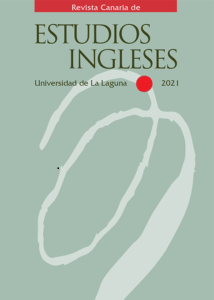Margaret Atwood's Metafictional Acts: collaborative storytelling in The Blind Assassin and Oryx and Crake
Abstract
Contemporary Canadian authors appear to find self-reflective fiction a powerful tool to explore a variety of issues. Margaret Atwood’s latest novels continue her exploration of the dynamics of story telling. In Negotiating with the Dead (2002), Atwood discusses the writing triangle (i.e. the interconnection between the writer, the reader, and the text) as “communion,” and she stresses the importance and singularity of the reader in the process. The aim of this paper is to describe the writing triangle in her latest novels and to discuss its implications in the context of Atwood’s own production. In them, two lovers live out their passion in closed rooms while they tell each other tales. The storyteller has the ability to keep the listener enthralled, but the audience is far from powerless, since for them listening becomes an act of (psychological versus physical) possession, whereby they appropriate and ‘consume’ their loved ones.



